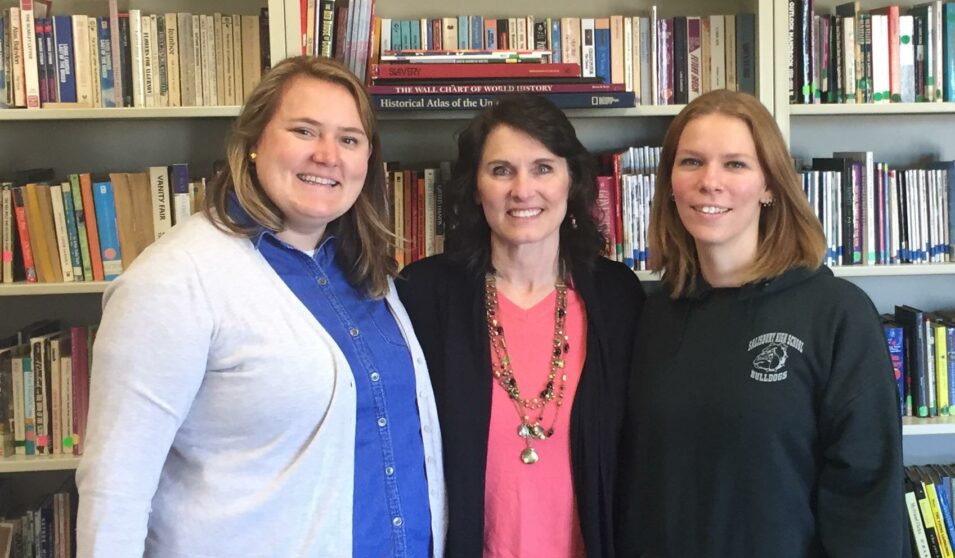Rural Schools Collaborative's Northern California Hub
Students become more engaged scholars and gain confidence about their capacity to do meaningful work when they have an opportunity to share their research in public dialogues with interested others.
Embedded in the first-year political science course on American Government, the bi-annual CSU, Chico Town Hall Meeting provides students with a public arena for discussing current policy issues with other students, faculty, administrators, and community members. Students choose from a list of timely topics such as immigration, freedom of speech, and homelessness. They research and prepare talking points in preparation for attending the town Hall event where community consultants provide students feedback on their ideas. Afterward, they write an action plan based on their research and conversations as well as information gathered at event.The action plans are assessed for understanding of American Government, ways that community members can intersect and influence policy making as well as for writing, perspective taking and critical thinking. Town Hall is a form of Public Sphere Pedagogy(PSP), which emphasizes high-impact practices such as collaboration, undergraduate research, and community-based learning. This model originated at California State University–Chico (CSU Chico) in 2006 and has become an exemplar for other universities across the country.
Town Hall 2.0
Town Hall has shown to have such positive impacts for Chico State students that we want to share this opportunity with communities in our region. Town Hall 2.0 was an idea hatched in a Masters in Education course (EDCI 656 Rural and Small School Education) taught by Dr. Ann Schulte, Rural Schools Collaborative advocate. One of the members of that class Karyn Cornell, a student in the Masters of Public Administration, initiated the concept. The goal was to enlist college students to mentor high school students in all of the civic engagement skills they had learned as participants in Town Hall, and also to encourage more students to attend college. The EDCI 656 class researched the idea and presented the project proposal to a group of university and community stakeholders at the end of the course. The following year, Karyn pursued implementation of this project as part of her Master's program and the pilot project Town Hall 2.0 was born.
Along the path of planning the pilot program, Karyn was introduced to Amy Rhoades, an undergraduate in Social Work working on her honors project. Amy attended Salisbury High School, a Red Bluff continuation school, many years ago as a teen mom. She credits the staff at the school for seeing her potential and helping her graduate high school. At the time, she didn’t think college was an option for her. For her honors project, Amy wants to return to her home community and research ways to support more students from Salisbury in getting to college. When Karyn and Amy met to discuss their shared interests, they decided that Town Hall 2.0 should make its stage debut at Salisbury and the principal of the high school, Barbara Thomas, agreed.
Town Hall 2.0 is designed to provide young people from North State communities and Chico State students the opportunity to interact and learn from one another. The goals are to provide all student participants with skills in collaboration, research, and community engagement, and potentially encourage more young people to attend college and then return to their communities to continue their civic work. Public Sphere Pedagogy research suggests these types of activities help develop a stronger connection to one’s place. During the Town Hall 2.0 pilot program, Chico State students will engage the high school students in learning about local public policy matters important to Tehama County. The pilot program includes one initial visit by the Salisbury students to the Chico State campus, scheduled online meetings for the students to touch base with each other throughout the semester, and the program culminates with Chico State students traveling to Red Bluff to assist the Salisbury youth in conducting a Town Hall activity. The culminating activity will allow the student participants and mentors to discuss and present on the topics they have researched and engage with members of their community.
Chico State will provide oversight of the program with an interdisciplinary cadre of faculty advisors: Dr. Ann Schulte (Education; Faculty Fellow for Rural Partnerships), Dr. Matt Thomas (Political Science), and Dr. Susan Roll (Social Work; Director of Civic Engagement). Karyn Cornell will administer the pilot program, with Amy Rhoades as the lead mentor. The Chico State team will design the campus visit to include meetings with the college student mentors, as well as a campus tour and connections with any other aspects of college life that the high school students request. Barbara Thomas, Salisbury principal, will arrange travel for the campus visit and provide access to technology for the online mentoring meetings. The Expect More Tehama team will assist Salisbury staff in securing facilities, recruiting consultants and moderators, and promoting the culminating Town Hall event in the community.
The hope is that Town Hall 2.0 will be coming to other North State communities in the future.
Thank you to Ann Schulte, Rural Schools Collaborative Advocate and Northern California Hub Coordinator, for sharing the good work being done to meaningfully engage young scholars in collaboration, research, and community engagement throughout rural northern California. We invite you to earn more about our Northern California Hub and other regional hub sites!

